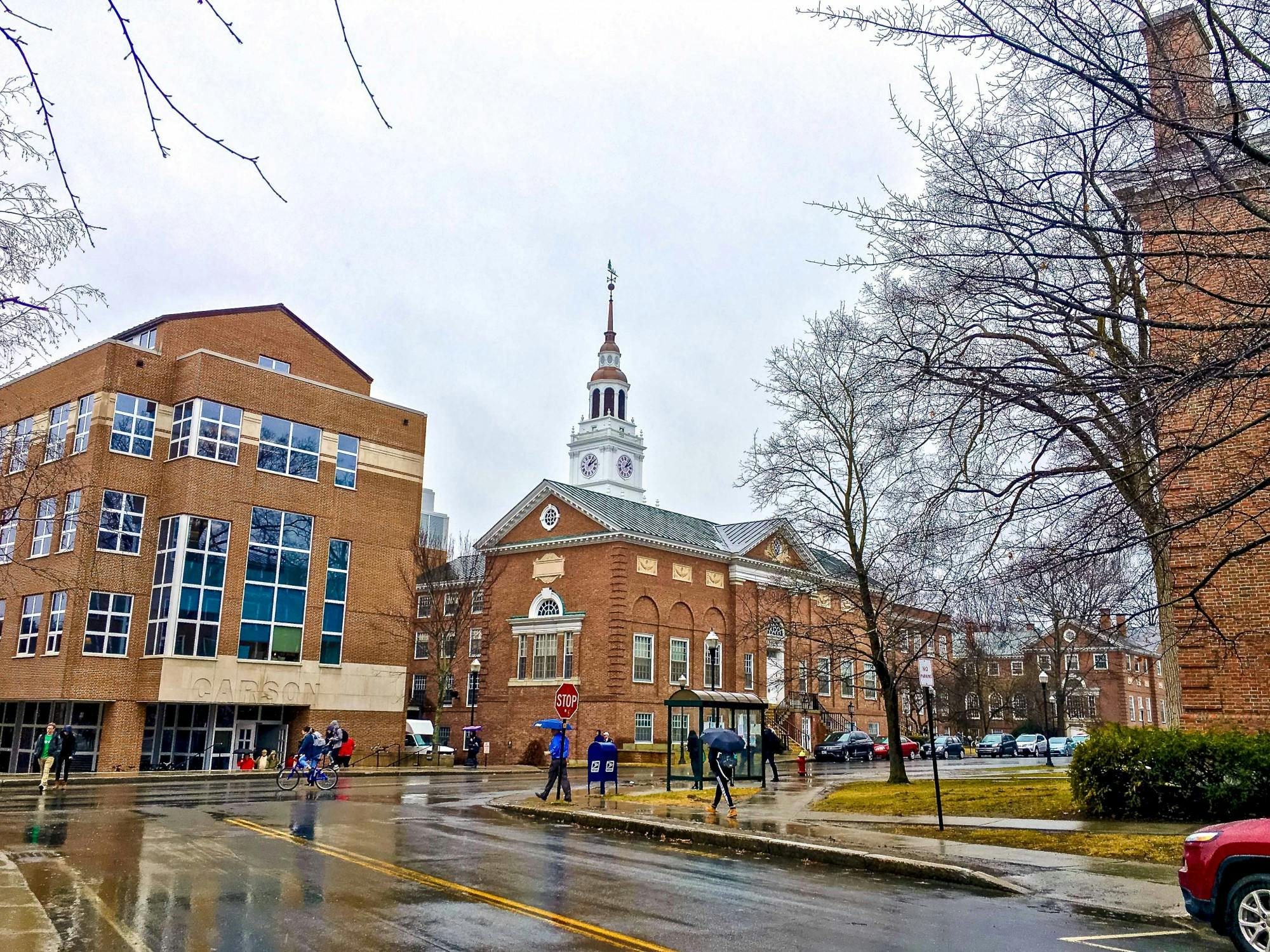On April 16, student campaigning began for positions on Dartmouth Student Government, Class Councils and the Committee on Standards & Organizational Adjudication Committee. The Election Planning and Advisory Committee updated the 2023 election code to limit campaigning during the election period, payments for campaign services and vote-buying.
EPAC updated their rules to prohibit candidates from “spending additional funds” and participating in “in-person campaigning” on election day, though online advocacy is allowed, according to the 2023 election code. The rule change, which affects the 24-hour period beginning on April 24 when students vote for their representatives, is intended “to limit coercive behavior,” according to the code.
The updated election code also establishes new rules surrounding “vote-buying” and “payment for campaign services.” The new rules prohibit purchasing or exchanging goods or services for votes, as well as promising future goods or services for votes. The regulations further stipulate that students only “be paid a reasonable rate” for campaign services.
The changes follow last year’s election code updates, which provided candidates with the ability to more freely use social media for campaigning. Those changes, which affected the first in-person Dartmouth Student Government race since the onset of the COVID-19 pandemic, also included several budgetary increases for candidates.
EPAC chair Will Elliott ’25 explained that this year’s election day rule changes mark a transition to more open campaigning.
“In the past, campaigning was not allowed during the 24-hours at the end of the campaign period,” Elliott said.” “[EPAC is] slowly walking towards allowing it to be completely okay.”
Elliott said that the campaign finance changes were intended to “promote fairness” within the election process, adding that he was “actually surprised” the EPAC code had not explicitly prohibited such practices prior.
“Not that [EPAC] has run into issues with [providing goods and services for votes] in the past, but we wanted to make it concrete,” Elliott said.
Favion Harvard ’26, who is running for reelection as a West House Senator, said that EPAC is an important organization for regulating social media campaigns. EPAC’s new campaign finance changes were “very understandable,” he added.
“You shouldn’t be buying votes either way,” Harvard said. “And if people don’t want to vote for you, they’re not going to vote for you.”
At an institutional level, EPAC has also been subject to recent changes, Elliott said. EPAC, which has historically consisted of a maximum of seven members, updated its total to nine in the winter, he added. Elliott said that this revision was made “to make sure that we have class representation every single year” across different grades.
Elliot said these regulatory and organizational changes to EPAC align with the group’s core principles to “maintain the kind of conduct that you would expect out of a Dartmouth student: to be respectful.”
“[EPAC] wants campaigns to be issue-oriented and policy-oriented, not attacking candidates,” Elliott said. “So we enforce a no negative campaigning clause in our code.”
Kiara Ortiz ’24, who is running for Student Body Vice President alongside presidential candidate Jessica Chiriboga ’24, praised EPAC for its oversight.
“I think generally having EPAC is great because they mitigate a lot of the bias people may be concerned about, and they are also a body that is interested in change and very open to it,” Ortiz said. “And what they want to do is just have clean, easy elections for students, which is really appreciated.”
Ortiz added that she “had not really run into any issues [in previous elections] because [EPAC] has been very clear.” EPAC provided clarity on the election code by setting up a Q&A for all students on the ballot, according to Ortiz.
“I already knew how to set up my budget sheet, how much I could spend, which events I can host [and] who to email,” she said. “So it’s all been pretty clear and fun. I’m very glad that there’s a separate body on campus handling it.”
Student government organizations such as DSG “hold a lot more weight and power” in the College’s decision-making process compared to last year, Ortiz said.
“Especially with the new administration coming in, I want that to be communicated to them effectively — which is why it’s important to vote, so that we can show President Beilock and her new administration that students want student perspective involved, [that] we want Student Government involved in making these decisions,” Ortiz said.
Correction Appended (April 21, 10:46 a.m.): A previous version of this article incorrectly referenced Dartmouth Student Government as Student Assembly. The article has been updated for clarity.
Correction Appended (April 22, 2:33 p.m.): The article has been updated for clarity to reflect that the Election Planning and Advisory Committee issued the new campaign laws, not the Dartmouth Student Government.
A previous version of this article also incorrectly referred to Dartmouth Student Government as the Undergraduate Student Government. The article has been updated.




